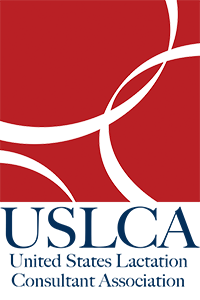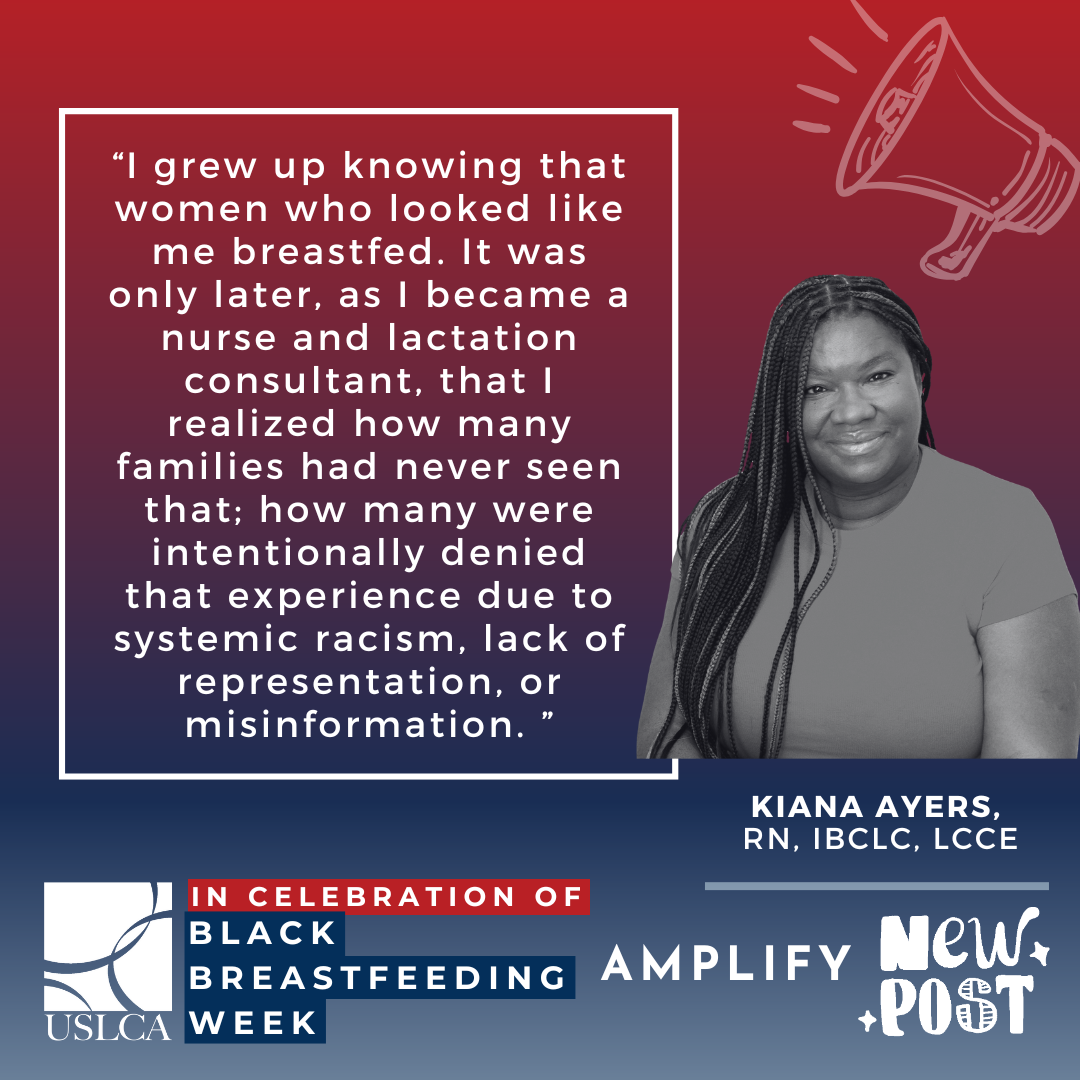Celebrating the Significance and Impact of Black Breastfeeding Week
By: Jessykah Aytch
 In a country that often asks “Why does everything always have to be about race?”, it’s imperative to recognize and celebrate initiatives that shed light on the unique experiences of underrepresented and underserved communities, namely African-American people. One such initiative is Black Breastfeeding Week, a revolutionary movement aimed at raising awareness about the significance of breastfeeding among Black People. This annual event not only addresses disparities in breastfeeding rates but also highlights the historical, cultural, and health-related factors that contribute to these disparities. Black Breastfeeding Week is also an opportunity to spread love, and share in Black joy and celebrate, in addition to educating the public and professionals on how they can better support the lactation and breastfeeding journeys of Black families.
In a country that often asks “Why does everything always have to be about race?”, it’s imperative to recognize and celebrate initiatives that shed light on the unique experiences of underrepresented and underserved communities, namely African-American people. One such initiative is Black Breastfeeding Week, a revolutionary movement aimed at raising awareness about the significance of breastfeeding among Black People. This annual event not only addresses disparities in breastfeeding rates but also highlights the historical, cultural, and health-related factors that contribute to these disparities. Black Breastfeeding Week is also an opportunity to spread love, and share in Black joy and celebrate, in addition to educating the public and professionals on how they can better support the lactation and breastfeeding journeys of Black families.
Black Breastfeeding Week, typically observed from August 25th to 31st, is a time to amplify and celebrate the voices and stories of Black parents, while also acknowledging the challenges our communities face in regards to breastfeeding. This year’s theme is “ We Outside! Celebrating Connection & Our Communities” which in my opinion seeks to honor the triumphs of Black lactation and build a stronger community instead of constantly unpacking our challenges. Black Breastfeeding Week was founded in 2013 by Kimberly Seals Allers “an award-winning journalist, author, and nationally recognized media commentator, consultant, and advocate for breastfeeding and infant health”, Kiddada Green “the founding executive director of Black Mothers’ Breastfeeding Association (BMBFA)”, and Anayah Sangodele-Ayoka “co-editor of Free to Breastfeed: Voices from Black Mothers and a graduate Nurse-Midwifery/Women’s Health Nurse Practitioner student at Yale University School of Nursing”, with the goal of addressing breastfeeding rates among Black breastfeeding parents in the United States. Despite the numerous proven benefits of breastfeeding for both infants and mothers, the Black community has historically faced disparities in breastfeeding rates due to many factors.
Understanding the breastfeeding rates within the Black community requires acknowledging the historical and cultural factors that have contributed to this disparity. Historical trauma, stemming from the systemic oppression and exploitation of Black bodies, has created a complex relationship with practices such as breastfeeding. The separation of enslaved Black parents from their infants during slavery, coupled with the forced wet nursing of white infants, disrupted the natural bonding process between Black mothers, parents, and their babies. These deep-rooted historical traumas continue to impact breastfeeding decisions and experiences today.
Cultural factors also play a role in shaping perceptions of breastfeeding within the Black community. Modern influences, such as the prevalence of formula advertising (I encourage researching PET formula and the Fultz sisters) and a lack of representation in certified lactation consultants and breastfeeding advocacy, have perpetuated this disparity. Black Breastfeeding Week seeks to counter these narratives by fostering a global supportive community that empowers Black parents to embrace breastfeeding as a valuable, accessible, and healthy choice for their families.
One of the core reasons for celebrating Black Breastfeeding Week is the urgent need to address health disparities among Black infants and parents. Black infants have disproportionately higher rates of infant mortality and are more susceptible to various health conditions. By increasing breastfeeding rates within the Black community, health disparities can be mitigated, and both maternal and infant health outcomes can improve.
Black Breastfeeding Week is more than just an awareness campaign; it’s a movement, celebration, and series of events that empowers Black parents to make informed choices about infant feeding and nurtures a sense of community. The events whether virtual or in-person allow breastfeeding parents to meet, bond, and interact with people who resemble their reflection as well as give hugs, share tips, and tell stories that let them know that they aren’t alone, even when they fail to see themselves represented in most breastfeeding spaces. By highlighting the stories and experiences of Black breastfeeding parents, Black Breastfeeding Week creates a platform for shared narratives and solidarity. This sense of community support is invaluable, especially for parents who might otherwise feel isolated or unsupported in their breastfeeding journey.
Black Breastfeeding Week is a vital movement that addresses historical, cultural, and health-related factors contributing to the disparities in breastfeeding rates within the Black community. By shedding light on these challenges, celebrating the resilience of Black parents, and promoting the numerous benefits of breastfeeding, this initiative plays a crucial role in improving health equity and fostering a sense of empowerment and community. As we recognize the importance of Black Breastfeeding Week, we take a step closer to a more inclusive and supportive world for all parents, infants, and families. When we uplift the most marginalized among us, we all rise.
To learn more about Black Breastfeeding Week visit https://blackbreastfeedingweek.org, and follow hashtags #BBW23 #WeOutside #blackbreastfeedingweek on all social media platforms. To connect with other Black breastfeeding parents, if you are Black or a Person of Color, consider joining the Mahogany Milk Support Group on Facebook.
Happy Black Breastfeeding Week!
About the Author: Jessykah Aytch – Doula, Childbirth Educator & Lactation Clinic Coordinator
I’ve been trained as a doula since 2015, through the YWCA in Greensboro, NC. I started as a doula and mentor for teen parents, as the years progressed I was trained as a full-spectrum doula and childbirth educator. In the spring of this year, I graduated from North Carolina A&T University’s Human Lactation Pathway 2 Program and will sit for the IBCLC exam in September.
I love connecting with families and assisting them in their birth, postpartum, and lactation journeys. I mainly work with underserved communities, and it brings my heart joy to know that I am assisting families who would not otherwise be able to access support. I am most disappointed in the lack of representation in the lactation industry, however; thanks to programs like the ones at A&T, more people are gaining access and being afforded resources to help them be able to become certified lactation consultants. I am one who has benefited greatly from our Pathway 2 program. I’m inspired by the Black culture and history involving breastfeeding and lactation in this country. I find myself feeling infuriated by historical and current circumstances but inspired to produce change. My mother’s journey and hearing stories like hers keep me immensely inspired. My mother was not afforded an opportunity to breastfeed because she was not assisted or supported. She was a single Black parent and due to her situation, she was pressured to formula feed. To this day, my mother vividly remembers her traumatic birth experience and lack of support around breastfeeding. I use my mother’s journey as fuel for motivation to continue being active in my community for parents and families with the mission of helping them know that resources and support are available and accessible.



